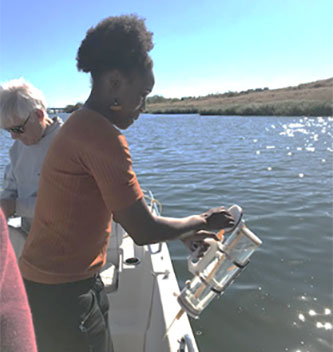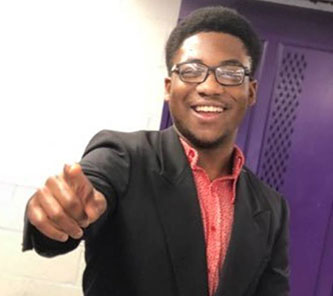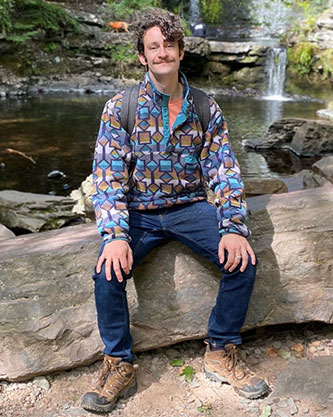Featured Students
Andrea Mason, Ph.D.
Andrea Mason was recently awarded the 2020 Emerging Investigator Award from the Journal of Archaeological Science (JAS) and Society for Archaeological Sciences (SAS) for her first authorship role on the paper titled “Provenance of tin in the Late Bronze Age Balkans based on probabilistic and spatial analysis of Sn isotopes.” (doi: https://doi.org/10.1016/j.jas.2020.105181.) This award is for one the papers Mason published from her dissertation. Her Ph.D. advisor was Prof. Wayne Powell from the Department of Earth and Environmental Sciences.
The reviewing panel noted the complex approach to Sn isotope analysis, including the characterization of cassiterite sources and Late Bronze Age artifacts, coupled with k-means clustering and Bayesian probabilistic statistical methods, which outlines an original contribution to isotope studies.
Mason will receive a $500 cash prize, and the manuscript will be freely available to read and download until 31st October 2022. In addition, the manuscript will be highlighted by both JAS and SAS through their communications and websites. JAS and SAS partnered in this initiative in 2019 to highlight and celebrate the key role of early career researchers in advancing archaeological science. This year’s submissions for the award were once again of a very high standard, demonstrating the exciting new ways in which early career researchers are contributing to the field.
The purpose of the award is to promote and acknowledge research excellence among early career scientists and provide an international venue for the publication of significant work. The research must have a notable impact in the field of archaeological science. We encourage submissions for future rounds of this award (authors are asked whether they would like to be considered for the award when submitting a manuscript). Winners will be announced on a yearly basis.

Nia Rene
Nia Rene
CUNY Doctoral candidate Nia Rene, who works with Prof. Jennifer Cherrier of the BC Earth and Environmental Sciences department, joined the National Centers for Coastal Ocean Science (NCCOS) as an Environmental Scientist and will coordinate the Aquaculture Phytoplankton Monitoring Network. Currently, Nia is a NOAA EPP Earth Systems Sciences and Remote Sensing Scholar, whose research focuses on understanding the links between harmful algal bloom events and coastal nutrient flux from various sources under stress of climate change. Nia is a product of CUNY. After receiving a BS in Chemistry from BC, she went on to pursue a master’s degree and completed a thesis that focused on investigating the mitigation of septic effluent nitrogen using hybrid green infrastructure for the management of harmful algal bloom growth and toxic production in Long Island, New York’s coastal waters. We wish Nia continued success in her professional development and look forward to the contributions she will make to improving the environment and our lives.

Patrick Ihejirika
Patrick Ihejirika
Patrick Ihejirika, a Psychology major, has been named a 2021 Goldwater Scholar. Ihejirika, who wants to become a neurologist, joins Abiha Kazmi, another 2021 recipient, as only the second and third Brooklyn College students to win the award, one of the country’s most prestigious for undergraduate students who want to go into research in science, math, or engineering. It was established by Congress in 1986 to ensure that the country had enough professionals in those fields. The scholarship covers a student’s tuition and fees and room and board, minus any support they already have from other sources.
Congratulations Patrick!

Anthony Tantillo
Anthony Tantillo
On May 3, Anthony Tantillo of the Physics Department defended his dissertation titled “Materials Optimization for Magnetic Refrigeration and Thermomagnetic Power Generation.”
In simplified terms, Anthony studied materials that have a magnetic field-controlled temperature dependence and have potential applications as refrigerants. His defense was successful, and Anthony became the first CUNY doctoral student to earn his degree for his advisor – Associate Professor Karl Sandeman.
During his education Anthony was supported by grants from industry as well as the Physics Department’s Spruch Fund. Anthony’s post-graduate plans will likely find him working in data or quantitative analysis in the finance or banking industries.






